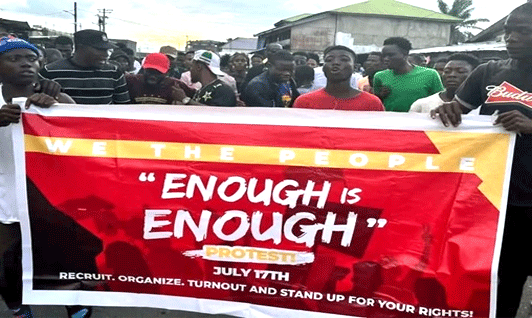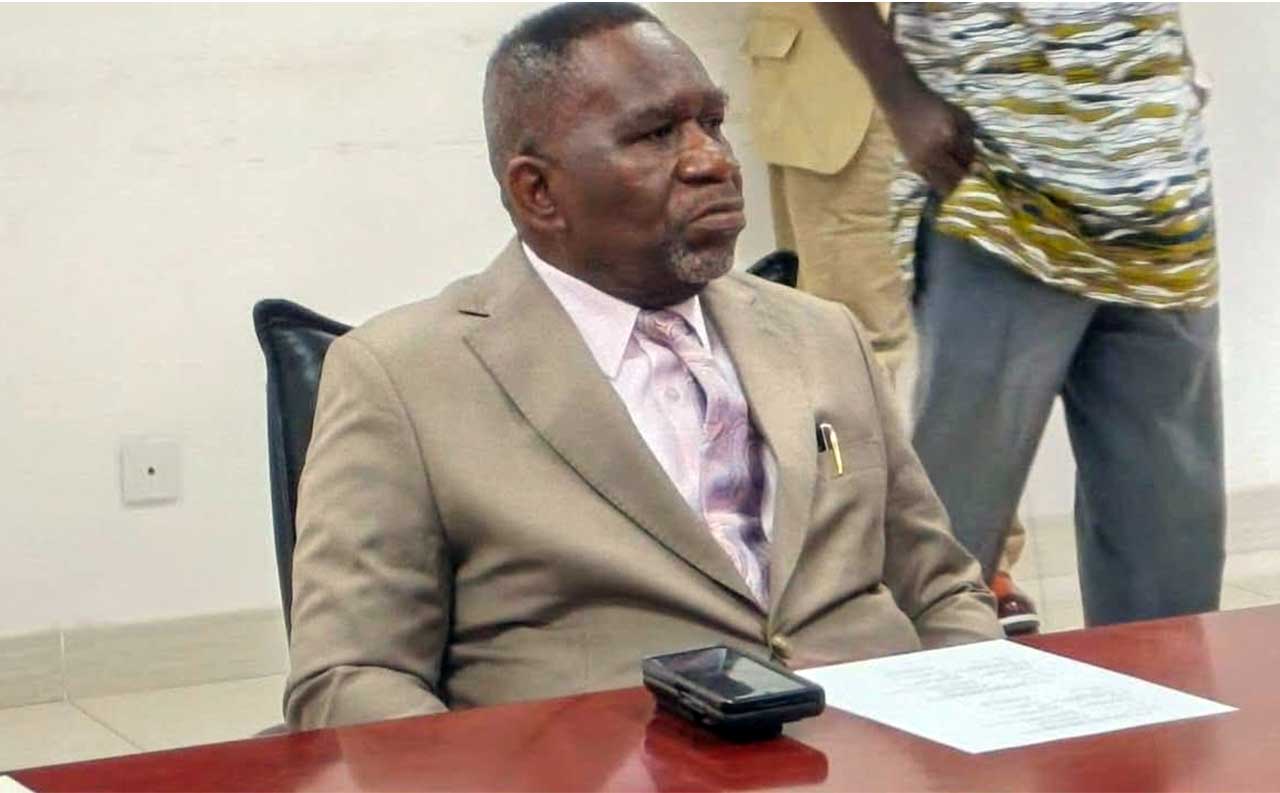A communication professional, Solomon A. Ware, Sr., says the highly publicized July 17 “Enough is Enough” protest, yielded limited tangible results. The protest was organized with the aim of advocating for improved governance and systemic reform, In an article released over the weekend, Mr. Ware said while the event succeeded in attracting significant attention and received official approval from authorities, its overall impact on advancing critical national issues remains modest.
The demonstration, which, according to him, drew a relatively low turnout, was largely peaceful, an achievement worthy of commendation, considering Liberia’s history of protests that have occasionally escalated into unrest. “Observers have noted that despite initial expectations, the protest did not descend into violence or disorder, reflecting a commendable commitment to public safety. However, in terms of resonance and policy influence, the protest fell short of expectations. It lacked the depth and widespread engagement necessary to galvanize the broader population or to prompt immediate government action,” Ware added.
Drawing from his over fifteen years of experience covering Liberia’s political protests and social movements—from the transitional period following the civil war to the administration under President Ellen Johnson Sileaf, he recognized that protests are most impactful when they foster meaningful dialogue and catalyze substantive change.
“Regrettably, this recent demonstration appeared to lack such momentum. Some concerns voiced by the petitioners seemed based on allegations rather than thoroughly substantiated evidence, which may have undermined their credibility and public perception. Additionally, a significant portion of the populace seemed disengaged, continuing with their daily routines and seemingly dismissing the protest’s significance.”
Journalist Ware further noted that it is important to emphasize that the success of protests cannot be solely measured by the number of participants. While mobilization is vital, Ware believes that their true effectiveness lies in their ability to highlight urgent issues and serve as catalysts for systemic change.
Protests, he said, are a valuable platform for raising awareness and fostering dialogue; however, their ultimate worth depends on whether they inspire concrete actions and policy reforms. Meanwhile, the communication professional has appreciated President Joseph Nyuma Boakai for offering a balanced perspective on the protest, which suggested that the demonstration was largely driven by frustration over recent crackdowns on drug abuse rather than genuine grievances related to governance.
Mr. Ware reechoed the president’s emphasis that youth participation in protests should be complemented by constructive efforts—such as education, employment opportunities, and recreational activities—to address the root causes of dissatisfaction among young people.
The article went further to say that while the peaceful nature of the protest and its role in drawing attention to calls for improved governance and accountability are commendable, it’s crucial to recognize that such events, in isolation, are unlikely to bring about the fundamental reforms Liberia needs.
He stated that meaningful progress will require a sustained, strategic approach—one that combines peaceful demonstrations with ongoing dialogue, policy initiatives, and community engagement, adding that the current environment calls for collaborative efforts among all stakeholders to foster tangible change.
“While the July 17 protest demonstrated a genuine desire among Liberians for positive change, its limited immediate impact highlights the need for more strategic, well-organized, and issue-focused efforts. For Liberia to realize its full potential and effectively address its challenges, peaceful demonstrations must be complemented by initiatives targeting the underlying causes of discontent,” he concluded.



